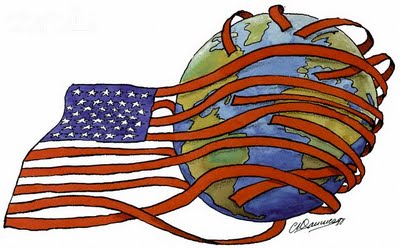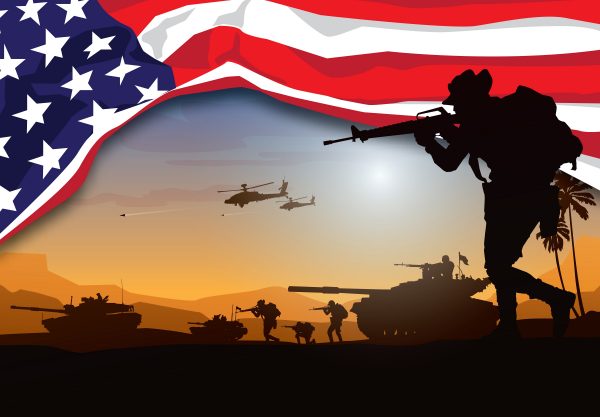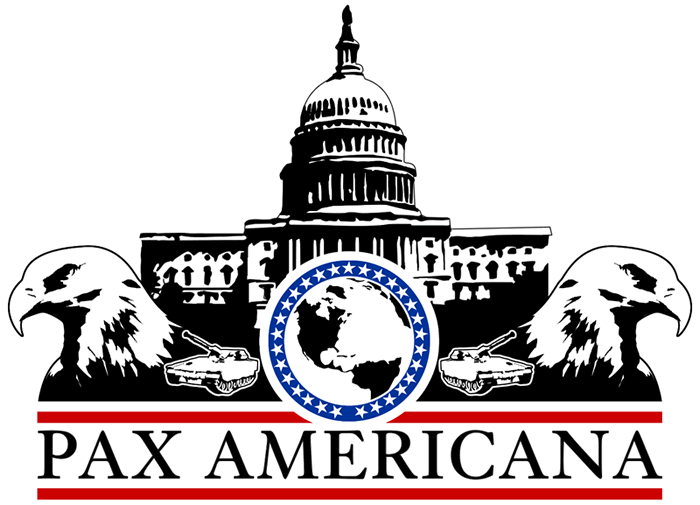
Views: 1765

Veterans Day has passed. The annual ritual never changes. Politicians who didn’t serve in the armed services start unnecessary wars, killing military personnel whose sacrifices are then lauded. Officials say these heroes died defending our freedom. That is almost always a lie.
Sometimes Washington must go to war. Not often, however. Despite the endless claims that we live in a dangerous world, America is amazingly safe. No other power could defeat, let alone conquer, the United States. Only Russia has a comparable nuclear arsenal, but it would be destroyed if Moscow targeted America. China and Russia trail U.S. conventional military strength and are more or less strategically isolated. In contrast, Washington is allied with every other major industrialized state.
 Despite their bluster, the so-called rogue states, most notably North Korea and Iran, are not planning to attack the United States. Instead, they are desperate to ward off American attack. Since Washington routinely employs regime change against governments on America’s “naughty” list, Kim Jong-un looks rational, not suicidal, in seeking to create a deterrent to preserve his rule.
Despite their bluster, the so-called rogue states, most notably North Korea and Iran, are not planning to attack the United States. Instead, they are desperate to ward off American attack. Since Washington routinely employs regime change against governments on America’s “naughty” list, Kim Jong-un looks rational, not suicidal, in seeking to create a deterrent to preserve his rule.
Washington’s most pressing security challenge is terrorism. But while targeting civilians is a moral outrage, terrorism does not pose an existential threat to America. Indeed, European and Latin American nations have confronted and survived more virulent attacks. Israel, Sri Lanka and Turkey also have suffered prolific terrorist bombings. So, too, Iraq, after Washington invaded that country and triggered sectarian war.
Moreover, interventions, invasions and occupations are no answer to terrorism. On the contrary, terrorism is a poor man’s weapons against stronger powers. It is politics by other means when the other side has a preponderance of traditional military power. To understand terrorism is not to justify it. But it long has been a political tool: two Russian czars, an Austro-Hungarian archduke (heir apparent), two former Indian prime ministers and countless other foreign officials have been assassinated by terrorists. Before Iraq, the most prolific suicide bombers on earth did their killing in Sri Lanka. Countries like Russia are not targeted because they are so liberal; Turkey, Jordan and Kuwait are not attacked for being infidels.
Washington should kill or incapacitate those already determined to kill Americans, but also stop making so many enemies. In Yemen, for instance, the United States is helping the repressive, licentious Saudi royals slaughter people who have never done anything against America. Washington is involved in a civil war in which Riyadh intervened to reinstall a pliant regime. The Yemenis know who is providing the bombs to Saudi Arabia, offering targeting assistance to the Saudi air force and refueling Saudi planes. It should surprise no one if someday a Yemeni commits terrorism against the United States and its people.
Yet the United States is constantly at war, and in far more nations than most Americans realize. Combat in Afghanistan is entering its seventeenth year. U.S. personnel are back in Iraq. They are fighting in Syria, the Philippines and across Africa, including Niger, where four American servicemen recently died. Drone campaigns and special operations forces have been particularly active in Pakistan, Somalia and Yemen. As noted earlier, the United States is also underwriting Saudi Arabia’s aggressive war against Yemen. Worse, Washington is prepared to battle China, Russia and North Korea to defend prosperous and populous allies, which could defend themselves.
 Perhaps most striking is how few of America’s “big wars” are justifiable. Most were conflicts of choice undermining rather than sustaining American liberties. The revolution created the nation. But while Washington was justified in defending itself from Great Britain in the War of 1812, the most serious casus belli, an attack on an American warship, took place years before. In 1812, war fever mostly reflected the desire to annex Britain’s Canadian possessions.
Perhaps most striking is how few of America’s “big wars” are justifiable. Most were conflicts of choice undermining rather than sustaining American liberties. The revolution created the nation. But while Washington was justified in defending itself from Great Britain in the War of 1812, the most serious casus belli, an attack on an American warship, took place years before. In 1812, war fever mostly reflected the desire to annex Britain’s Canadian possessions.
The Mexican-American War was an imperialistic bonanza, in which Washington used a dubious territorial claim as an excuse to seize half of its neighbor. Some U.S. officials desired to take the whole nation. The Spanish-American War was equally misguided: Spain brutalized its colony of Cuba, but no worse than Americans treated their native population. Moreover, Washington seized the Philippines as well, even though it had nothing to do with the initial dispute. The United States suppressed an indigenous independence movement with enormous brutality; some two hundred thousand Filipinos died in the process.
World War I was a foolish, unnecessary war. Washington joined with the so-called Entente, which included the anti-Semitic despotism of the Russian Empire, and defended Serbia, whose murderous rulers triggered the conflict by engaging in an act of state terrorism. Aiding them did nothing to “make the world safe for democracy.” Rather, President Woodrow Wilson imagined himself anointed from on high to remake the globe.
Alas, World War II was the inevitable result of Wilson’s folly, the unfinished business from the so-called Great War. World War II is usually considered the “good war,” with clear and evil enemies. But it likely would not have occurred had the United States not previously unbalanced the European balance of power and promoted an unsustainable “settlement,” which broke down almost immediately.
Originally published on 2017-11-19
Author:
Source: The National Interest
Origins of images: Facebook, Twitter (X), Wikimedia, Wikipedia, Flickr, Google, Imageinjection, Public Domain & Pinterest.
Read our Disclaimer/Legal Statement!
Donate to Support Us
We would like to ask you to consider a small donation to help our team keep working. We accept no advertising and rely only on you, our readers, to keep us digging the truth on history, global politics and international relations.
FOLLOW US ON OUR SOCIAL PLATFORMS









